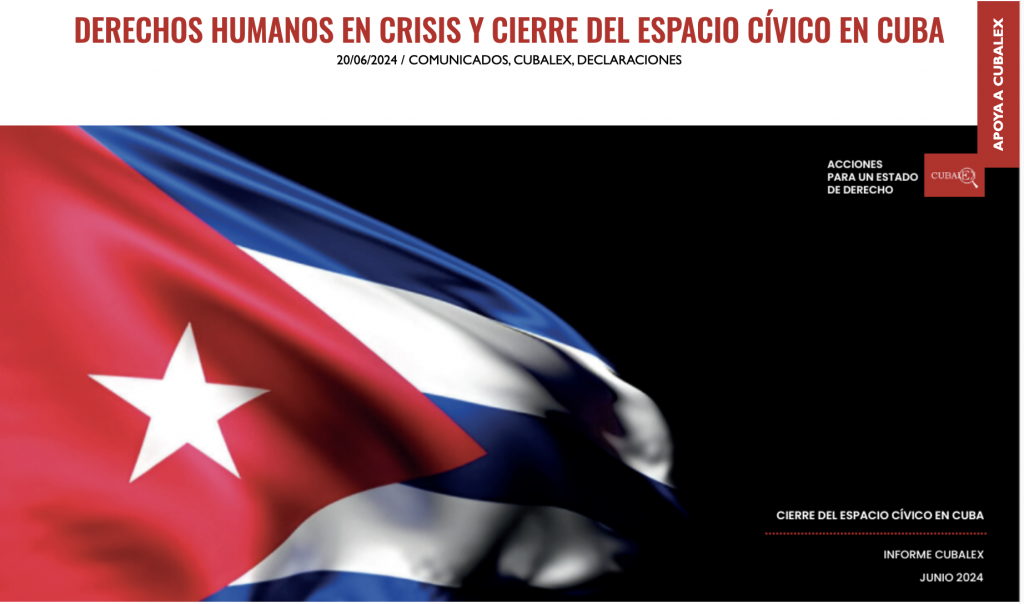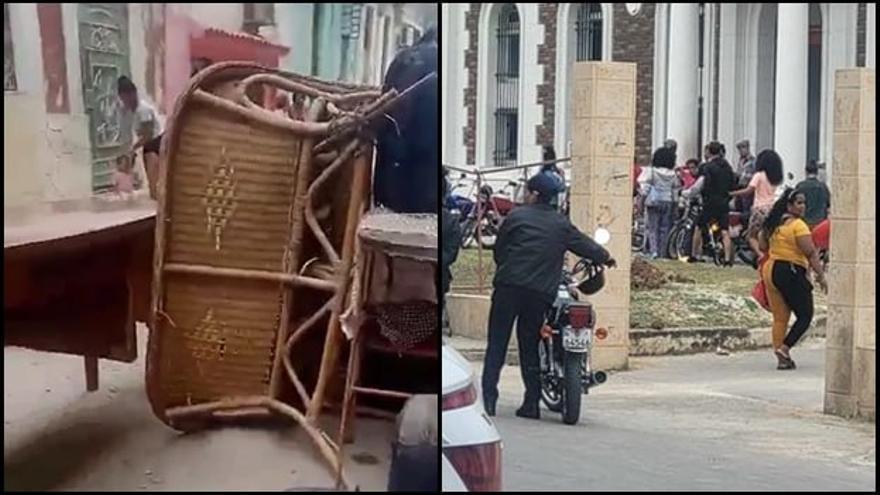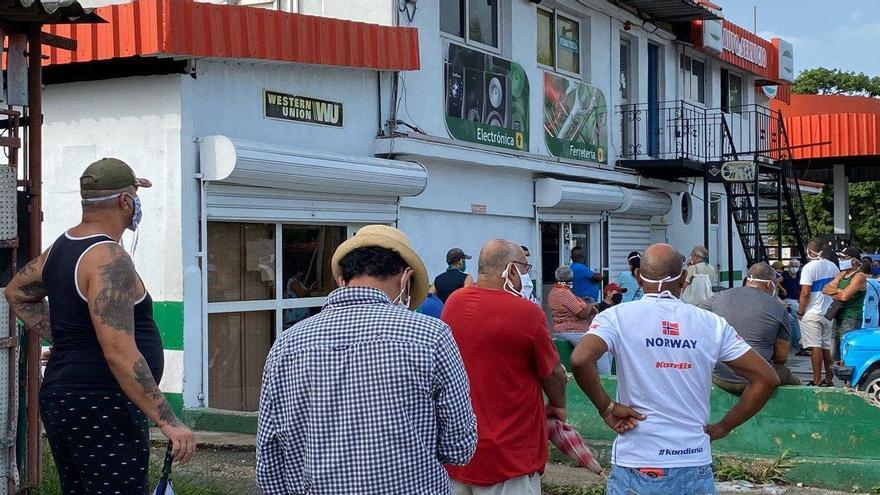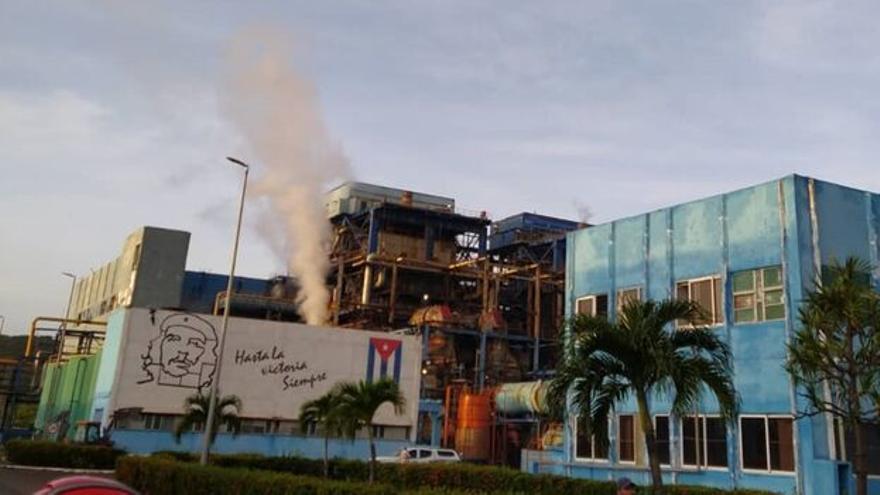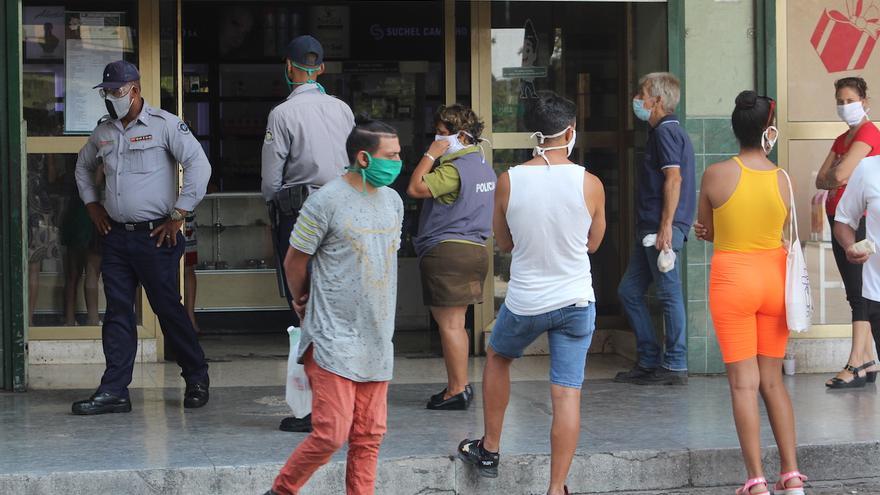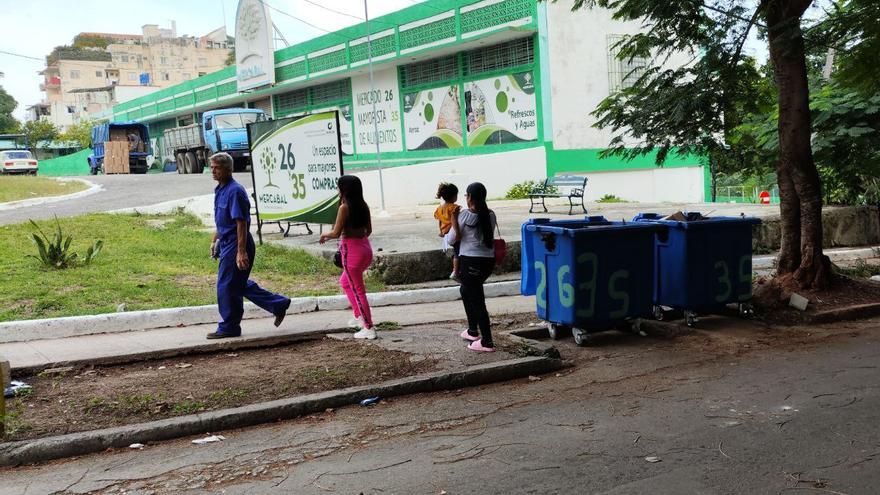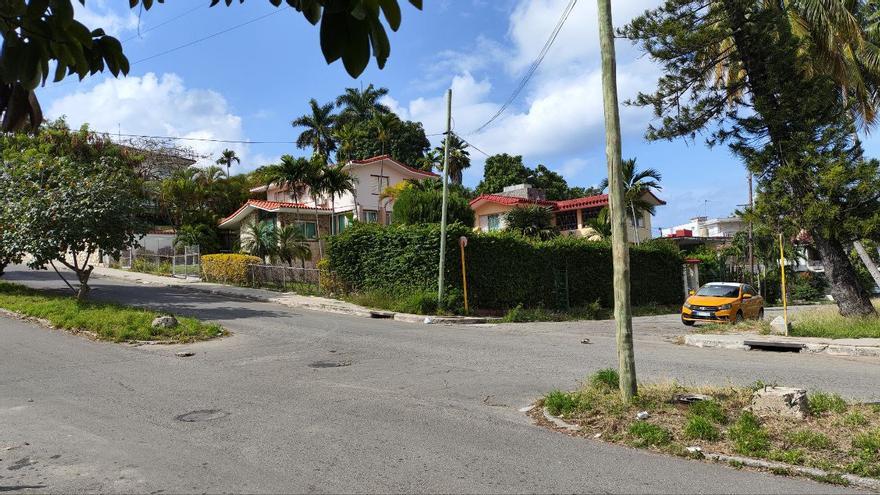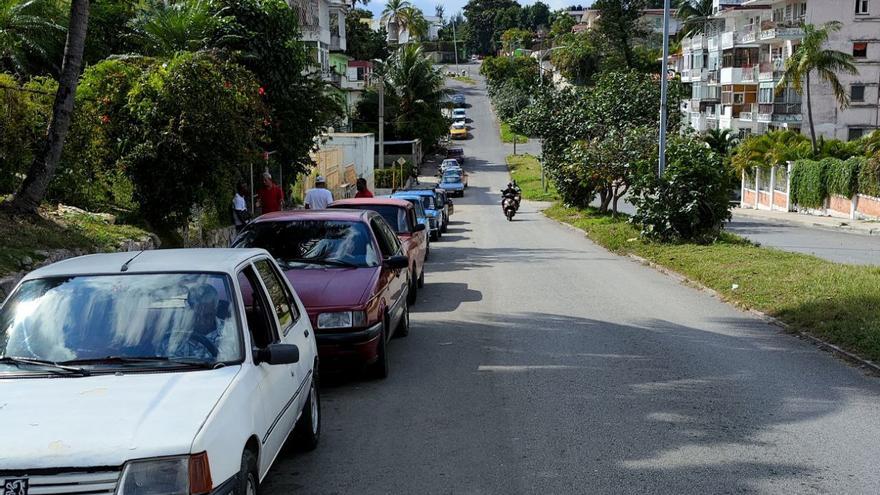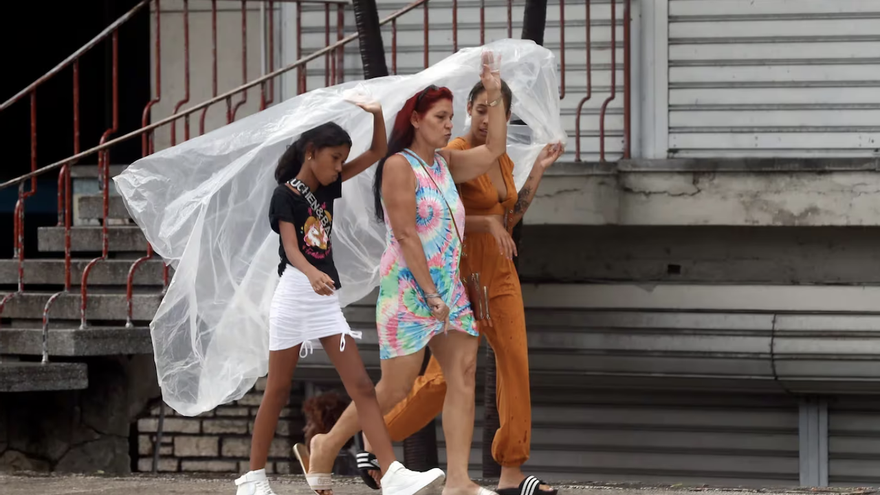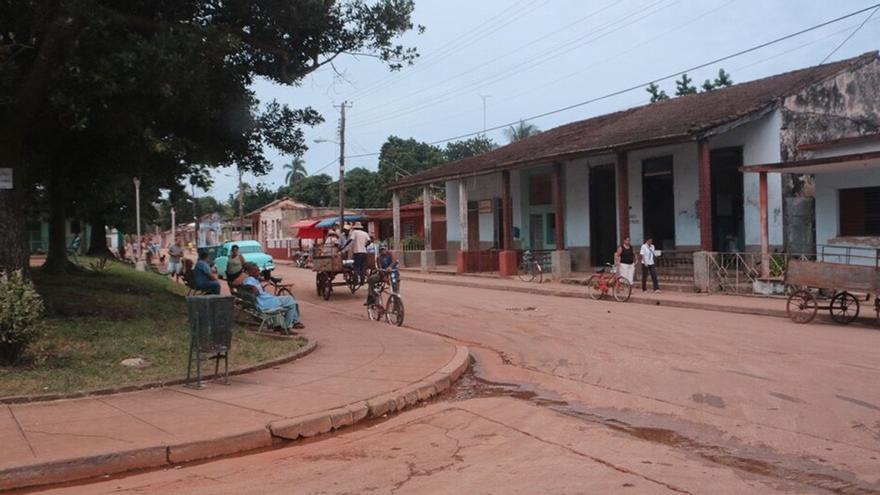
Jeovany Jiminez Vega, 21 March 2024 — The messes keep on coming for that scoundrel Diaz-Canel since he assumed his role as the dummy in the window and we can’t see any end to what looks like karma for some very bad past life. Little has changed in Cuba since the historic protests that in July 2021 [commonly referred to as ’11J’] shook more than fifty cities across the island; little has changed except that today we are hungrier, inflation has increased dramatically, we are much poorer and we suffer longer and longer blackouts; In other words, we live in a country that is exponentially more unhappy and insecure, going through the saddest moments of its history, for all of which last weekend tens of thousands of jaded Cubans had the patriotic idea of once again taking to the streets.
But unlike in 2021, these protests were accompanied by storm signals much more threatening for the dictatorship; this time, there was a more disturbing background noise accompanying them which, even though hidden, confirm the most fearsome nightmare of the regime: in addition to its usual perennial quagmires – perpetual shortages, the abysmal quality of all basic services including health, education, transportation and all communal services, followed by a long further list – today the dictatorship will have to deal for the first time, at least publicly, with the dark winds of disloyalty, a variable that Castroism never had to consider at their current level, not counting the Ochoa case – because it was generally understood that this was always in full knowledge of Fidel and Raul Castro, which cannot be interpreted as a real insubordination.
That’s how bad things are at the Biran estate [birthplace of the Castro brothers]. It so happens that during the last few weeks it has partially turned out that a group of officers of different ranks of the Cuban army were detained or are under investigation – including General Leopoldo Cintra Frias, ex-Minister of the Armed Forces and until now a historical stalwart of the regime – for having distributed, and communicated repeatedly through satellite phones capable of evading Big Brother’s control, which is extremely serious and in Castro’s jargon can only be understood as an act of high treason, something very serious and which may end up keeping the autocrats in Havana awake at night. continue reading
Of course, the official press, trying to cover up the scandal, rushed to deny the detention of the former minister, but the fact that a group of high-ranking officers, most of them active with various positions in the chain of command – with troops and weapons under direct command- are whispering behind the back of the hierarchy is something unprecedented that is already very relevant and serious, and cannot be concealed by the Castro establishment, above all because it clearly questions the leadership of the high command, calls into question the myth of blind obedience to its outdated ideals and leaves its allegedly infallible counterintelligence with its pants down.
This situation has a very simple human explanation. In a society where poverty is so deep-rooted, real privileges are reserved only for the high command and leaders of the upper echelons, while the middle-ranking military officers must make do with crumbs and chicken skin at the end of the month, which they must perceive as outrageous, even though this may seem a luxury in contrast with the even more appalling poverty of the common people. Well, now this unpredictable iceberg may have entered a collision course against this ship without a captain at the bow, which is drifting aimlessly, without leadership or port of destination.
Now, on the other hand, it cannot be a coincidence that just now the corruption scandal involving Alejandro Gil, former Minister of Economy along with dozens of minor figures is breaking out. This happens after several months of repeated public denunciations through dozens of alternative media – independent press and Cuban youtubers, hundreds of blogs and social networks – and that it is precisely now, just when those murky waters within the military officialdom are stirring, that Gil’s defenestration takes place?
What at another time could be taken as yet another of the cyclical purges of Castroism, the sacrifice of a typical scapegoat that seeks to focus on a nobody the anger of millions of Cubans subjected to bloody shock policies, today’s move must be read as an obvious tactic. So far so ugly for the photo, but fatally for Castroism, it is in the middle of this tasteless move that tens of thousands of Cubans, fed up with so much misery, hunger and blackouts decided to take to the streets in what were the largest demonstrations – but not the only ones – in Cuba since 2011.
This was not in the plans of the Biran clan and it definitely complicates the picture because it happened at the most inopportune moment, when those in Havana are breaking records of unpopularity and suffer a total discredit at the international level, when they can no longer find any creditor to swindle even under the ground, with an economy in absolute ruin and a literally chaotic social situation, all of which makes up what Rubiera [Cuban meteorologist, specialist in hurricanes] would have called a perfect storm for Castroism.
This is undoubtedly the most delicate and difficult moment for the dictatorship since the mass protests of 11J, to distract national and world attention and so hide the hottest potato on the table, a typical smokescreen that tries to cover up the unmentionable terror of the leadership in the face of the most serious evidence: that a part of its officialdom has conspired in something that clearly and from any angle smells like a plan for a coup d’état! !??
So far so ugly for the photo, but, fatally for Castroism, it is in the middle of this tasteless move that tens of thousands of Cubans, fed up with so much misery, hunger and blackouts decided to take to the streets in what were the largest demonstrations – but not the only ones – in Cuba since 2011. This was not in the plans of the Biran clan and it definitely complicates the picture because it happened at the most inopportune moment, when those in Havana are breaking records of unpopularity and are suffering a total discredit on the international level, when they can no longer find any creditor to swindle even under the ground, with an economy in absolute ruin and a literally chaotic social situation, all of which makes up what meteorologist Rubiera would have called a perfect storm for Castroism. This is undoubtedly the most delicate and difficult moment for the dictatorship since the mass protests of 11J.
It is at this point that we have to regret the absence of a cohesive opposition with a strong and convincing leadership, capable of effectively channeling popular anger in the face of so much injustice, with clear proposals, with a realistic previously announced action program, which, when the time comes, will take the flood of the people towards the reconquest of power, without improvisation but without hesitation, until this political mafia that today tries to silence us with a couple of pounds of rice and four bits of skin taken from some military unit, which is highly offensive and clearly a mockery by these immoral pieces of shit.
But if the regime has been good at anything, it has been at disuniting us and extinguishing public spirit. After subjecting several generations of millions of Cubans to the fiercest indoctrination, this is how they have us, asking for bread and light, as if freedom no longer calls for more than that. It hurt to hear that crowd shouting “electricity and food!” when if you save your breath and listen harder you can hear it shout “Liberty Damn it!!!!” or “Down with dictatorship!!!!!”
I know that this is all more complicated than it seems and that it is easier to write about it here than to shout it in the streets, but if after the brutal repression suffered on 11 July, my people dared to go out into the streets again with their faces uncovered to shout before the incredulous eyes of the repressors not only “electricity and food” but also “Freedom” and “Homeland and Life“, the world would realise the extent of our desperation.
This crowd of ragged people who took to the streets knows that more than a thousand political prisoners are today serving long sentences in Castro’s prisons, that among them the majority are 11 July prisoners – including dozens of minors and young people whose sentences exceed their own age – and they have not forgotten the unpunished beatings with which the “revolutionaries” – that is the bunch of assholes who, under the leadership of Diaz-Ratbag, repressed their own people – defended these same streets just in order to guard the Biran estate.
In the end, social engineering works and more than sixty years of terror have taken their toll on us; all that dust has produced this mud. In the absence of a civic front which sticks together and of a proposal to be taken up by society – which does not mean that such a proposal does not exist – we had to be satisfied with social catharsis, with walking through the streets putting our hearts and souls into it, in a cry which is just, but chaotic, lashing out like headless chickens and without precise objectives, without a hill or a center of power to conquer, without a concrete program for the future clutched in our fist to endorse our cry of anger with a proposal for a free country.
Instead we must endure in the midst of nausea that Diaz-Ratbag and his Umbertico Lopez planting their faces on TV to accuse imperialism and its “mercenaries” for the thousandth time as the cause of all this rage that again, at least for the time being, we will have to swallow.
Translated by GH




